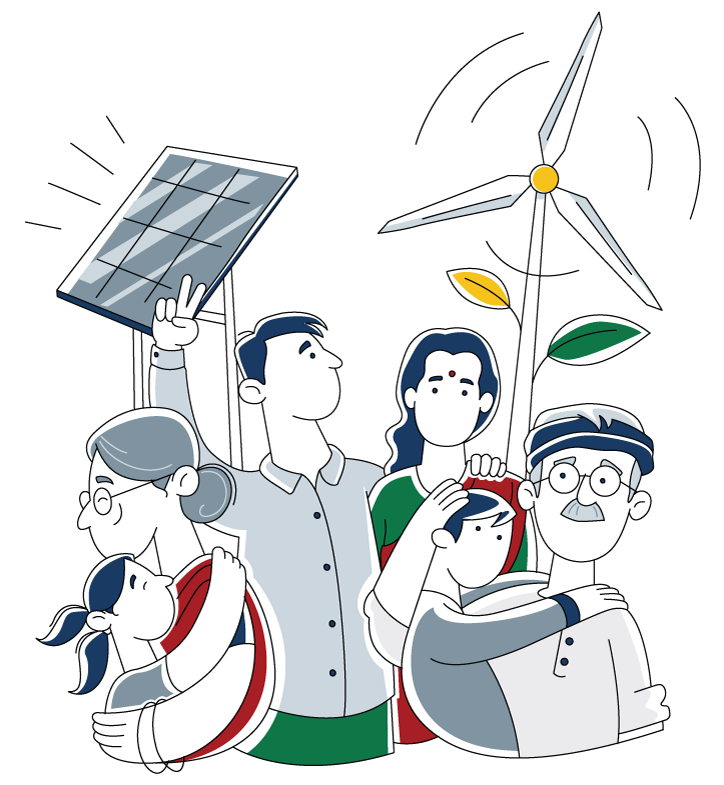Social Energy Transition (SET)
The social dimensions of India’s energy transition often remain underrepresented in research and policy. A green transition is not only about replacing coal:

The energy transition path is set to change India and the rest of the world. India’s commitment to becoming a net-zero economy by the year 2070 is going to be a notable journey. Ashoka Centre for a People-centric Energy Transition (ACPET) has been created to fill a critical knowledge gap in this pathway for India and the global south. The knowledge around the subject of transition whether it is in terms of the range of solutions, their financing, shaping of the old and new energy markets, or policy frameworks is still being shaped. ACPET hopes to build frameworks, pedagogies and solutions that are context-responsive, people-centric and advance in the three pillars (economic, social and governance) of sustainable development.
Learn More
The social dimensions of India’s energy transition often remain underrepresented in research and policy. A green transition is not only about replacing coal:

Data analytics is the foundational pillar of any energy policy think tank. Working at the intersection of energy policy-technology-finance-social welfare, ACPET’s EFAL

India has set ambitious goals for energy transition and sustainable energy development, actively shaping renewable energy policy and implementation measures to address the challenges of energy security, energy

The transition towards decarbonization strategies is complex, requiring engagement with clean energy research and emerging